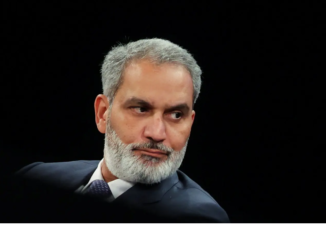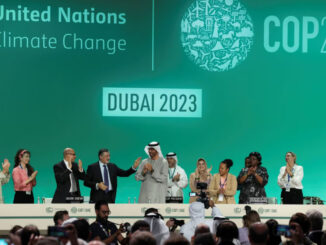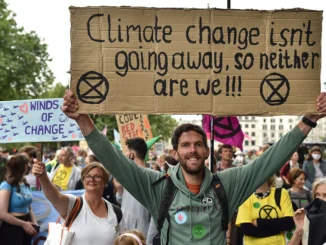
Authored by Alex Newman via The Epoch Times (emphasis ours),
The United Nations is seeking vast new powers and stronger “global governance” tools to deal with international emergencies such as pandemics and economic crises, a new U.N. policy brief has revealed, and the Biden administration appears to support the proposal.
The plan to create an “Emergency Platform,” which would involve a set of protocols activated during crises that could affect billions of people, has already drawn strong concern and criticism from U.S. policymakers and analysts.
Among those expressing concern is House Foreign Affairs Committee Chairman Rep. Michael McCaul (R-Texas), whose committee oversees U.S. foreign policy and involvement in international organizations.
“We must be sure that any global protocol or platform operated by the U.N. respects U.S. national sovereignty and U.S. taxpayer dollars,” McCaul told The Epoch Times.
He also noted his concern that the proposed platform expands the authority and funding of the U.S. and the definitions of “emergency” and “crisis” to include, for instance, climate change.
U.N. documents and statements released in March by key leaders of the global organization make clear that climate change is a major piece of the U.N. emergencies agenda.
Other critics who spoke with The Epoch Times expressed concern about the influence of the Chinese Communist Party (CCP) within the U.N., the global organization’s well-documented corruption problems, and its track record of dealing with previous emergencies.
“Allowing the U.N. to deal with this is the equivalent of putting the CCP in charge of global emergencies,” former U.S. Assistant Secretary of State for International Organizations Kevin Moley told The Epoch Times.
UN Vision for Global Crises Response
In a policy brief dubbed “Our Common Agenda” headlined “Strengthening the International Response to Complex Shocks – An Emergency Platform,” U.N. Secretary-General Ant?nio Guterres laid out his vision for empowering the global organization to deal with global crises.
“The challenges we face can only be addressed through stronger international cooperation,” Guterres declared, calling for “strengthening global governance” for current and future generations.
The policy brief builds on an earlier “Common Agenda” document and comes as U.N. leaders outline the plans for a “Summit of the Future” set to be held during the General Assembly’s annual high-level meeting in September.
If it gets a green light from member states, the global emergency protocols would be “triggered automatically” in case of a global crisis, “regardless of the type or nature of the crisis involved,” the U.N. chief said.
The protocols would bring all sorts of institutions together, including national governments, international institutions, and the private sector. Ultimately, all would have to recognize the “primary role of intergovernmental organs [such as U.N. agencies] in decision-making,” the document states.
“The Emergency Platform, once convened, would be a tool for the United Nations system to implement decisions taken by relevant organs,” according to the policy brief.
State Department Supportive
A spokesman for the U.S. State Department suggested that the Biden administration backs the plan.
“The administration has made clear its firm belief that U.S. national security is best served by engaging actively and comprehensively with the UN and other international organizations,” the spokesman told The Epoch Times in an e-mailed statement about the proposal.
“The U.N. is only as effective, transparent, and accountable as its membership demands, and the U.S. works tirelessly to ensure the U.N. meets those demands.”
The U.N. proposal was unveiled as multibillionaire Bill Gates, one of the most prominent voices during the COVID-19 crisis and a major financier of the World Health Organization (WHO) and vaccines, called for a global “fire department” to address international health emergencies.
Writing in The New York Times last month, Gates said a “Global Health Emergency Corps” could “spring into action at a moment’s notice when danger emerges.”
“The Global Health Emergency Corps will represent massive progress toward a pandemic-free future,” Gates wrote in the op-ed. “The ?question ??is whether we have the foresight to invest in that future now before it’s too late.”
UN Emergencies Protocol
Guterres, who is asking governments to approve his plan later this year, said risks are growing and becoming more complex.
“Enhanced international cooperation is the only way we can adequately respond to these shocks, and the United Nations is the only organization with the reach and legitimacy to convene at the highest level and galvanize global action,” he said. “We must keep strengthening the multilateral system so that it is fit to face the challenges of tomorrow.”
Exactly what would constitute an emergency that would trigger the U.N. emergency response wasn’t made clear.
However, the document states that crises without “global consequences” would “not necessarily” be categorized as an emergency requiring U.N. intervention. In other words, some crises that don’t have global consequences might trigger a U.N. response.
Read more here…
Loading…



